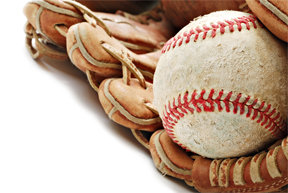Recently, I watched the annual Baseball Hall of Fame induction ceremony on television. Thousands of fans gathered at the museum in Cooperstown, in upstate New York, to honor a gritty slugger from Chicago, a scrappy manager from St. Louis, and an umpire so revered by players that they nicknamed him “God.”
While watching the broadcast, I thought, I should be there, too. No, I don’t mean as a member of the Hall of Fame – not after my lone season playing Little League in which I neglected to swing at a single pitch.
I mean I should have been in the audience. But not in Cooperstown. Instead, the Baseball Hall of Fame – the museum and the annual induction ceremony – should all be here in Hoboken.
Most Hobokenites should know a little about the game’s origins in Hoboken. As the newly refurbished plaque at the Washington and 11th Street intersection notes, two athletic clubs from New York played the first recorded and recognizable baseball game at the now-paved Elysian Fields overlooking the Hudson River on June 19, 1846.
You might think that the birthplace of the game would be the ideal place to store its most treasured artifacts, in the way that many adults can view their baby photos by visiting their childhood home. But a long time ago, Hoboken’s rightful status as the birthplace of baseball was hijacked.
Two commissions get it wrong
Baseball was booming along with the rest of America at the turn of the 20th century. The two leagues that comprise the Majors, the American and National, had recently begun staging the World Series to determine the ultimate champion. The game was being played by many different people in cities and small towns alike, and was becoming the national pastime.
In 1905, Al Spalding, a former star pitcher who upon retirement founded the sporting goods company, helped create a commission to determine the origins of the sport. The commission, led by Spalding’s friend Abraham Mills, reported that a young man and future Civil War general named Abner Doubleday invented baseball in Cooperstown in 1839. In the 1930s, a new Hall of Fame commission wanted to honor the game’s greatest stars. A Cooperstown businessman, recognizing the Mills Commission report and wanting to attract tourists, bestowed a museum to help the Hall immortalize the legends. Since then, the town has served as a mecca for baseball fans.
But even in 1905, historians disagreed with the Mills Commission’s findings about Abner Doubleday and Cooperstown. The prevailing theory now holds that at the urging of Spalding and other business interests, the Commission agreed that baseball should have a compelling birth story. What better way to make the game (and paying for tickets to watch it and the goods to play it) seem patriotic than to establish that it was the brainchild of an American war hero?
Yet Abner Doubleday was studying at West Point military academy, and was not living in Cooperstown in 1839. The general never mentioned in any statement or letter throughout his life that he had anything to do with creating baseball. The Mills Commission relied on uncorroborated testimony from a seventy-one year old former Cooperstown resident who claimed, as a child, he was present when Doubleday organized the first baseball rules.
Skepticism of the Mills Commission lingered until the 1940s, when historians had gathered enough evidence to prove that baseball actually began in Hoboken, and even Congress recognized this with an official proclamation in 1953.
But by then Cooperstown had been entrenched as a shrine, and Hoboken has since lost.
Hoboken’s baseball future
As many as 350,000 guests patronize the Hall every year, and the museum generates nearly $20 million in revenue. That’s in a remote village of 2,000 residents. Imagine if the baseball museum was instead located in Hoboken. Not only would diehard fans from all over the country visit, but a hefty number of New York City tourists and residents could easily slip across the river to visit the Hall, and also hit local shops and restaurants along the way. Maybe a bed and breakfast industry would emerge to accommodate the pilgrims, as has happened in Cooperstown. The city would also find its prestige enhanced. We Hobokenites might know baseball began here, but does anyone else in America?
Obviously, the museum will stay in Cooperstown. But Hoboken can still look for ways to capitalize more on its baseball history. City Council member Beth Mason has proposed building a baseball field in the northwest corner of the city to try and attract a minor league team. What about building a special ballpark that would replicate the original Elysian Fields that were torn down in 1880? Then, if not a minor league team, what about forming a Harlem Globetrotters-type squad of retired major leaguers who would stage nightly games against all challengers? Such a team could be an ad hoc assortment of local vets and special guests passing through Hoboken. Done right, perhaps the old stars would sacrifice salary in exchange for the privilege of playing again in front of a roaring crowd. Not only would such games with a historic, “Take Me Out to the Ballgame” feel serve as a treat for residents, but they would also presumably attract plenty of tourists.
Once those tourists are here, surely we could get them to spend some time and money shopping and eating along Washington Street. Hoboken should benefit from its baseball heritage and give residents a chance again to root for the home team.
